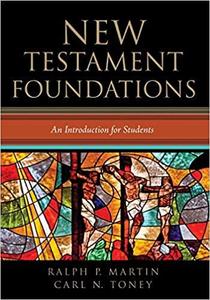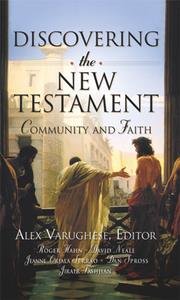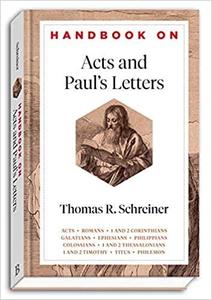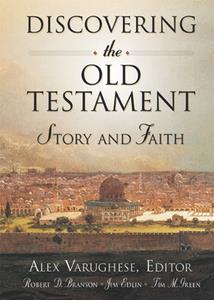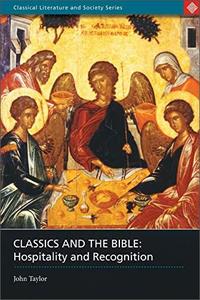New Testament Supernatural & Inerrant Proof per Hebrew Idiom
"softddl.org"
13-12-2020, 11:54
-
Share on social networks:
-
Download for free: New
-

New Testament Supernatural & Inerrant: Proof per Hebrew Idiom by Timothy Swiss
English | ISBN: N/A | ASIN: B08F6MVB65 | 247 pages | EPUB | 2020 | 1.46 Mb
Per application of the scientific method, the content of this book proves, beyond any reasonable degree of doubt, that the New Testament is supernatural, inerrant, and preserved-namely preserved intact, regarding wordage, since the original penning of the New Testament Scriptures in the Greek language: and furthermore, this book also proves that the subsequent application of punctuation to the wordage of the Greek Scriptures was accomplished through the supernatural guidance of the Holy Spirit of God, and is likewise inerrant, as pertains to the Fifth Revised Edition of the Greek New Testament. The complex, intricate, and consistent rules that apply throughout the Fifth Revised Edition of the Greek New Testament in regard to the Hebrew idiom leave no logical explanation other than supernatural production of both the wordage and the punctuation of the text. Thus, God not only guided the pens of the various men who originally composed the books that comprise the Greek New Testament, but also accomplished the preservation of Scripture and directed the accurate application of punctuation. What is meant by Hebrew idiom in this book is explained in chapter 2. The rules pertaining to the Hebrew idiom apply consistently, without exception, in books produced through such varying authors as fishermen, a tax collector, a physician, and a Pharisee. Not only does this indicate a single supernatural author who produced these books through the writings of various men, it also proves that the oldest Greek texts of New Testament books have been preserved without alteration or corruption. The rules that apply to the Hebrew idiom are so delicate that the addition or omission of a single word, or the addition or omission of a single mark of punctuation, or the change in arrangement of two words, or the application of the Hebrew idiom to someone who was not of Hebrew culture and who is not quoting someone of Hebrew culture, could result, in any of these instances, in statements that are obviously ridiculous and/or obviously in conflict with what is stated in other New Testament Scripture. There is not a single verse, in regard to the Hebrew idiom, that is ridiculous or in conflict with other New Testament Scripture: this requires inerrancy, and given that there are over 700 verses that pertain to the Hebrew idiom, it provides strong indication that the Fifth Revised Edition of the Greek New Testament is altogether inerrant. In summary, the Hebrew idiom addressed in this book proves the supernatural origin of New Testament Scripture, proves the inerrancy of New Testament Scripture, and proves the untainted preservation of the original Greek wordage. And considering that the original text composing the Greek New Testament was written in all capital Greek letters with limited if any punctuation, and considering that punctuation was added to the text composing the Greek New Testament centuries after the original penning of the books comprising the Greek New Testament, this Hebrew idiom also proves the supernatural guidance of the addition of punctuation to the Greek New Testament. In addition to providing proof that the Fifth Revised Edition of the Greek New Testament is supernatural and inerrant, this book also addresses doctrinal issues. Some of the questions answered in this book include the following: can Christian women wear braided hair, adorn themselves with jewelry, and teach adult men in Sunday school? Can Christians engage in physical warfare? Did the Biblical Israelites include the bloodline of Ishmael, the son of Abraham and Hagar? Does the report of Paul's conversion in Acts chapter 9 conflict with the report of his conversion in Galatians 1:16&17? Is there discrepancy between the accounts of the resurrection of Jesus Christ in the four Gospels? What does the New Testament teach regarding free will verses predestination? Answers to these questions, as well as answers to other questions, are brought to light through Scripture.
 New Testament Supernatural & Inerrant: Proof per Hebrew Idiom by Timothy Swiss English | ISBN: N/A | ASIN: B08F6MVB65 | 247 pages | EPUB | 2020 | 1.46 Mb Per application of the scientific method, the content of this book proves, beyond any reasonable degree of doubt, that the New Testament is supernatural, inerrant, and preserved-namely preserved intact, regarding wordage, since the original penning of the New Testament Scriptures in the Greek language: and furthermore, this book also proves that the subsequent application of punctuation to the wordage of the Greek Scriptures was accomplished through the supernatural guidance of the Holy Spirit of God, and is likewise inerrant, as pertains to the Fifth Revised Edition of the Greek New Testament. The complex, intricate, and consistent rules that apply throughout the Fifth Revised Edition of the Greek New Testament in regard to the Hebrew idiom leave no logical explanation other than supernatural production of both the wordage and the punctuation of the text. Thus, God not only guided the pens of the various men who originally composed the books that comprise the Greek New Testament, but also accomplished the preservation of Scripture and directed the accurate application of punctuation. What is meant by Hebrew idiom in this book is explained in chapter 2. The rules pertaining to the Hebrew idiom apply consistently, without exception, in books produced through such varying authors as fishermen, a tax collector, a physician, and a Pharisee. Not only does this indicate a single supernatural author who produced these books through the writings of various men, it also proves that the oldest Greek texts of New Testament books have been preserved without alteration or corruption. The rules that apply to the Hebrew idiom are so delicate that the addition or omission of a single word, or the addition or omission of a single mark of punctuation, or the change in arrangement of two words, or the application of the Hebrew idiom to someone who was not of Hebrew culture and who is not quoting someone of Hebrew culture, could result, in any of these instances, in statements that are obviously ridiculous and/or obviously in conflict with what is stated in other New Testament Scripture. There is not a single verse, in regard to the Hebrew idiom, that is ridiculous or in conflict with other New Testament Scripture: this requires inerrancy, and given that there are over 700 verses that pertain to the Hebrew idiom, it provides strong indication that the Fifth Revised Edition of the Greek New Testament is altogether inerrant. In summary, the Hebrew idiom addressed in this book proves the supernatural origin of New Testament Scripture, proves the inerrancy of New Testament Scripture, and proves the untainted preservation of the original Greek wordage. And considering that the original text composing the Greek New Testament was written in all capital Greek letters with limited if any punctuation, and considering that punctuation was added to the text composing the Greek New Testament centuries after the original penning of the books comprising the Greek New Testament, this Hebrew idiom also proves the supernatural guidance of the addition of punctuation to the Greek New Testament. In addition to providing proof that the Fifth Revised Edition of the Greek New Testament is supernatural and inerrant, this book also addresses doctrinal issues. Some of the questions answered in this book include the following: can Christian women wear braided hair, adorn themselves with jewelry, and teach adult men in Sunday school? Can Christians engage in physical warfare? Did the Biblical Israelites include the bloodline of Ishmael, the son of Abraham and Hagar? Does the report of Paul's conversion in Acts chapter 9 conflict with the report of his conversion in Galatians 1:16&17? Is there discrepancy between the accounts of the resurrection of Jesus Christ in the four Gospels? What does the New Testament teach regarding free will verses predestination? Answers to these questions, as well as answers to other questions, are brought to light through Scripture. Buy Premium From My Links To Get Resumable Support,Max Speed & Support Me
New Testament Supernatural & Inerrant: Proof per Hebrew Idiom by Timothy Swiss English | ISBN: N/A | ASIN: B08F6MVB65 | 247 pages | EPUB | 2020 | 1.46 Mb Per application of the scientific method, the content of this book proves, beyond any reasonable degree of doubt, that the New Testament is supernatural, inerrant, and preserved-namely preserved intact, regarding wordage, since the original penning of the New Testament Scriptures in the Greek language: and furthermore, this book also proves that the subsequent application of punctuation to the wordage of the Greek Scriptures was accomplished through the supernatural guidance of the Holy Spirit of God, and is likewise inerrant, as pertains to the Fifth Revised Edition of the Greek New Testament. The complex, intricate, and consistent rules that apply throughout the Fifth Revised Edition of the Greek New Testament in regard to the Hebrew idiom leave no logical explanation other than supernatural production of both the wordage and the punctuation of the text. Thus, God not only guided the pens of the various men who originally composed the books that comprise the Greek New Testament, but also accomplished the preservation of Scripture and directed the accurate application of punctuation. What is meant by Hebrew idiom in this book is explained in chapter 2. The rules pertaining to the Hebrew idiom apply consistently, without exception, in books produced through such varying authors as fishermen, a tax collector, a physician, and a Pharisee. Not only does this indicate a single supernatural author who produced these books through the writings of various men, it also proves that the oldest Greek texts of New Testament books have been preserved without alteration or corruption. The rules that apply to the Hebrew idiom are so delicate that the addition or omission of a single word, or the addition or omission of a single mark of punctuation, or the change in arrangement of two words, or the application of the Hebrew idiom to someone who was not of Hebrew culture and who is not quoting someone of Hebrew culture, could result, in any of these instances, in statements that are obviously ridiculous and/or obviously in conflict with what is stated in other New Testament Scripture. There is not a single verse, in regard to the Hebrew idiom, that is ridiculous or in conflict with other New Testament Scripture: this requires inerrancy, and given that there are over 700 verses that pertain to the Hebrew idiom, it provides strong indication that the Fifth Revised Edition of the Greek New Testament is altogether inerrant. In summary, the Hebrew idiom addressed in this book proves the supernatural origin of New Testament Scripture, proves the inerrancy of New Testament Scripture, and proves the untainted preservation of the original Greek wordage. And considering that the original text composing the Greek New Testament was written in all capital Greek letters with limited if any punctuation, and considering that punctuation was added to the text composing the Greek New Testament centuries after the original penning of the books comprising the Greek New Testament, this Hebrew idiom also proves the supernatural guidance of the addition of punctuation to the Greek New Testament. In addition to providing proof that the Fifth Revised Edition of the Greek New Testament is supernatural and inerrant, this book also addresses doctrinal issues. Some of the questions answered in this book include the following: can Christian women wear braided hair, adorn themselves with jewelry, and teach adult men in Sunday school? Can Christians engage in physical warfare? Did the Biblical Israelites include the bloodline of Ishmael, the son of Abraham and Hagar? Does the report of Paul's conversion in Acts chapter 9 conflict with the report of his conversion in Galatians 1:16&17? Is there discrepancy between the accounts of the resurrection of Jesus Christ in the four Gospels? What does the New Testament teach regarding free will verses predestination? Answers to these questions, as well as answers to other questions, are brought to light through Scripture. Buy Premium From My Links To Get Resumable Support,Max Speed & Support Me  https://uploadgig.com/file/download/e92d1d45bcCF2880/58cdw.New.Testament.Supernatural..Inerrant.Proof.per.Hebrew.Idiom.rar
https://uploadgig.com/file/download/e92d1d45bcCF2880/58cdw.New.Testament.Supernatural..Inerrant.Proof.per.Hebrew.Idiom.rar  https://rapidgator.net/file/30ae656937c9bd1b8c81e5802198b9f3/58cdw.New.Testament.Supernatural..Inerrant.Proof.per.Hebrew.Idiom.rar.html
https://rapidgator.net/file/30ae656937c9bd1b8c81e5802198b9f3/58cdw.New.Testament.Supernatural..Inerrant.Proof.per.Hebrew.Idiom.rar.html  http://nitroflare.com/view/7BDC68EFC5BA03A/58cdw.New.Testament.Supernatural..Inerrant.Proof.per.Hebrew.Idiom.rar
http://nitroflare.com/view/7BDC68EFC5BA03A/58cdw.New.Testament.Supernatural..Inerrant.Proof.per.Hebrew.Idiom.rar
The minimum comment length is 50 characters. comments are moderated
